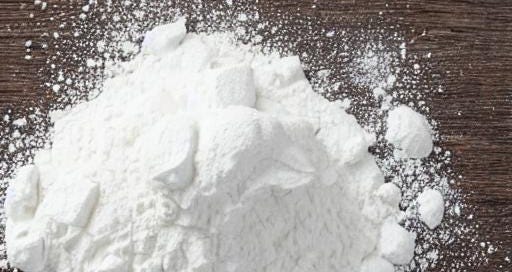Whether you have a healthy, active child, a child who is a picky eater, struggles to fall and stay asleep, an anxious child, a child with sensory processing difficulties, or one with neurodevelopmental challenges; this article may be beneficial to you.
Likewise, if any of the above apply to you personally (after all, we all used to be children) it may also be worth a read.
What is Magnesium?
Magnesium is an essential mineral that is needed for our body to function effectively. Our body is unable to produce magnesium, therefore we absorb it through the foods we eat.
Many foods contain magnesium. These include, green leafy vegetables, wholegrains, beans, nuts and fish.
Fruit and vegetables that are rich in magnesium include:
Spinach and other green leafy vegetables
Bananas
Potatoes with the skin on
Broccoli
Ocra
Avacado
Wholegrains rich in magnesium include:
Bran cereals
Quinoa
Brown rice
Wheat germ
Cereals ‘fortified with magnesium’
Nuts Seeds and Legumes rich in magnesium:
Black beans, Chickpeas, Edamame, Black-eyed Peas, and Soy beans
Cashews, Almonds and Brazil nuts
Pumpkin seeds, Chia seeds, Flaxseed and Sesame seeds
Fish rich in magnesium:
Salmon
Mackeral
Halibut
Tuna (whilst Fresh tuna is a better source of magnesium, tinned tuna does still contain magnesium)
Magnesium fortified foods such as protein powders, weight loss shakes and meal replacement bars, are also on the market. These have added magnesium, but it’s worth a look at the label to see the levels.
Why is Magnesium so important?
Magnesium is crucial for / supports the healthy functioning of many of our body systems, including the health of muscles. Without it our nerves wouldn’t be able to send and receive messages, and our muscles wouldn’t move the way they are supposed to. Below are a few ways that magnesium supports our body processes:
Regulates blood pressure and heart function
Repair and support of healthy DNA
Supports healthy digestion and regular bowel movements
Regulating blood sugar levels
Health and function of neurons to enable messages to be easily transmitted between the brain, muscles and organs
Essential in maintaining bone health
Regulates stress responses- however long term stress / anxiety can deplete magnesium supplies
Why is magnesium helpful for children / adults with neurodevelopmental disorders such as ADHD, Autism, or sensory processing challenges?
Individuals who have an overly responsive sensory system can often experience high levels of stress / cortisol, as they go through their day. Their stress levels may be triggered by frequent loud / unexpected noises, being touched/ shoved or bumped into as they go about their day, having to wear itchy, scratchy school uniforms, or the distress of not being able to eat their favourite (or only tolerable) food at lunch time, it being overcooked or substituted with slightly different ingredients… Or the demands / expectations placed on them to listen, follow instructions and do as instructed throughout the school day. For many of our children (and adults) this can cause high levels of the stress hormone cortisol to flood the body frequently throughout the day, with little or few chances to regulate this.
Being in a state of persistent high stress not only depletes magnesium in the body, but it also affects our ability to absorb the necessary goodness (and thus magnesium) from our foods to restore the balance.
This creates additional challenges. Not only is the body less able to regulate / respond to stressors in an effective way due to the high levels of cortisol having diminished supplies of magnesium, but the body also can’t absorb the necessary magnesium to restore the necessary levels.
Low levels of magnesium have long been associated with low mood, high anxiety and difficulties sleeping. And given that we understand magnesium to be crucial to the regulation of blood pressure, digestion, blood sugars, as well as repairing and maintaining DNA, and healthy neuron function etc. its easy to see how ongoing stress / emotional and sensory dysregulation can impact longer term mental and physical health.
Magnesium and Sleep
For many children (and adults) with neurodevelopmental challenges, their senses are in overload all day every day. They experience the world more intensely that others and consequently their stress response is frequently working harder than most. Without the necessary magnesium levels, their cortisol levels go un-regulated making it harder for them to fall, and stay asleep. This in turn makes them more sensitive to stressors the following day and so forth.
How can I increase my child’s magnesium levels?
Natural magnesium is always a preferred option over supplements. Try to increase the amount of magnesium rich foods your child eats. I know this can be tricky, especially if you have a child who is particularly sensitive to taste and textures and consequently has a limited diet.
Try the following:
Include (home made) smoothies into your child’s diet. If you can get a bit of fresh spinach in their great, if not try adding a banana and some milled seed mix which includes flax seed, pumpkin seeds etc.
Blend chia seeds into soup. It makes the soup a little thicker but doesn’t affect the taste or look of the soup, making this a win win if you can get away with it!
Use nuts as a sensory snack (see my article ‘Why are nuts a good snack for my child’ ), these are not only a good source of natural magnesium but are also a great sensory snack to help regulate your child.
AND ONE OF MY FAVOURITE AND EASIEST WAYS..
Add a large cup of Epsom salts to the bath 3 - 4 times a week. Be sure to dissolve them before your child gets in the bath (if they are sensitive to the feel / change of textures, as the salt can feel gritty when not fully dissolved). Epsom salts help to relax the muscles so are great for preparing your child for bedtime. They will absorb the magnesium through their largest organ (their skin) whilst enjoying their evening bath, none the wiser to the fact that it is doing them good!
Disclaimer: When taken in very high doses, it is possible to cause a build-up of magnesium which can be very serious and detrimental to health. This can lead to diarrhoea, irregular heartbeat, low blood pressure etc.







Epsom salts in the bath are fantastic for adults too. I always sleep well afterwards, especially if I've done any muscle activity beforehand!